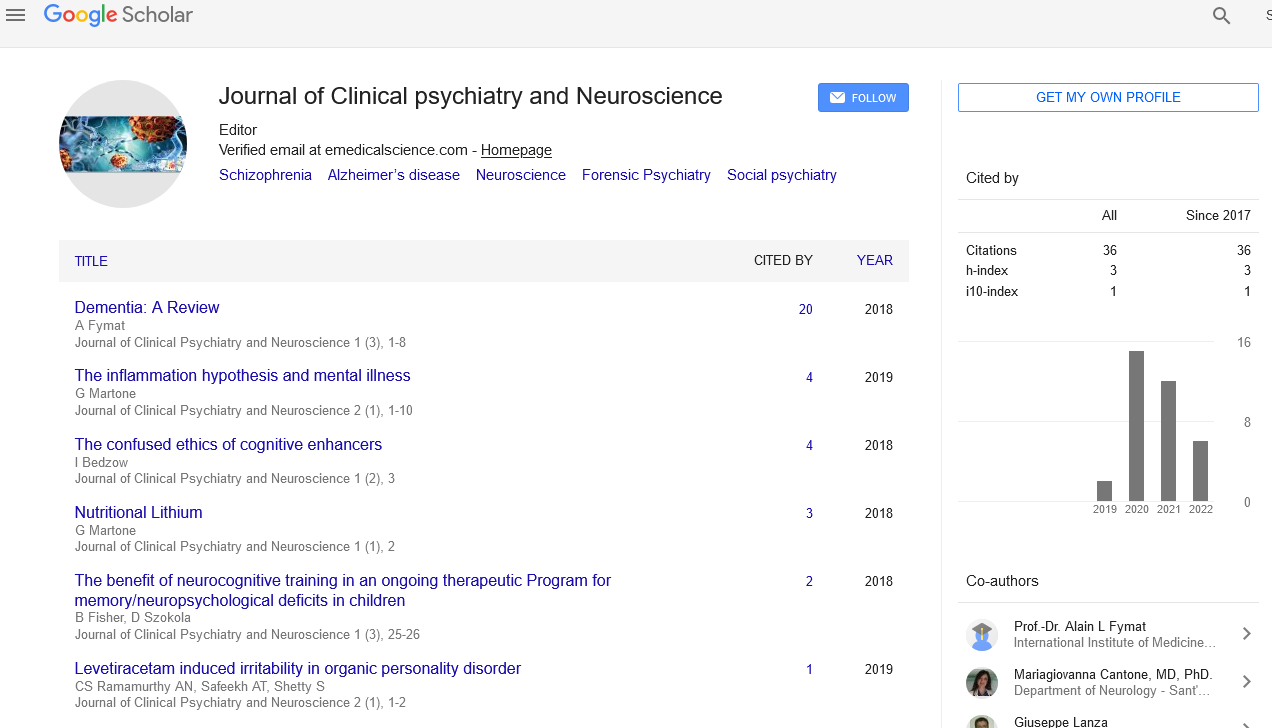Psychopharmacological treatment of Delirium in patients who are COVID-19+
Kemble Way, Wickford
, UK, Email: David.ho@nhs.net2 Azienda Socio-Sanitaria Territoriale (ASST) di Pavia, Italy, Email: fabrizio_pavone@asst-pavia.it
3 Dipartimento di Medicina Molecolare e Dello Sviloppo, Universita di Siena, Italy, Email: andrea.fagiolini@unisi.it
4 Essex Partnership University NHS Foundation Trust,
Kemble Way, Wickford
, UK, Email: stefano.gelati@sept.nhs.uk#Equally contribution
Kemble Way, Wickford, Essex, SS11 7FE
, UK, Tel: 01268 568092 (Extn. 4092), Email: David.ho@nhs.netReceived: 01-May-2020 Accepted Date: May 25, 2020; Published: 03-Jul-2020
Citation: Pavone F, Fagiolini A, Ho DK, et al. Psychopharmacological treatment of Delirium in patients who are COVID-19+. JCPN 2020;3(1):1-5.
This open-access article is distributed under the terms of the Creative Commons Attribution Non-Commercial License (CC BY-NC) (http://creativecommons.org/licenses/by-nc/4.0/), which permits reuse, distribution and reproduction of the article, provided that the original work is properly cited and the reuse is restricted to noncommercial purposes. For commercial reuse, contact reprints@pulsus.com
Abstract
The scale and speed of the COVID-19 pandemic has been devastating both to patients and healthcare systems globally. This article provides concise and accessible information regarding well known pharmacological treatments for delirium in patients who are COVID+. It draws from the experience from clinicians in Italy, which was the initial epicentre of the outbreak in Europe.
The agents reviewed here provide effects, side effects and interactions with other medications which are commonly used to treat patients, including antiviral agents. In conclusion, clinicians should recognise and treat delirium promptly in COVID+ patients given its potential to alleviate distress in patients, and allow for healthcare systems not to be unduly distracted by patients who present with delirium and agitation.





